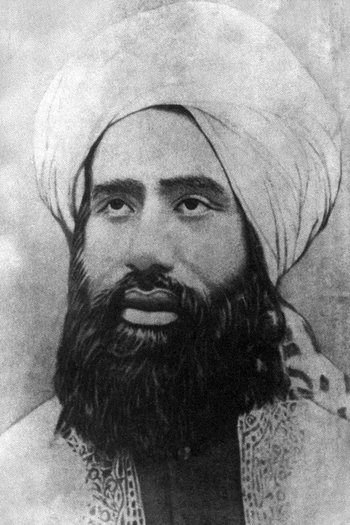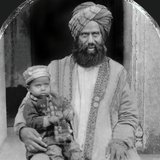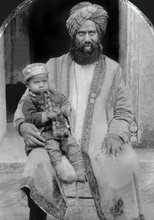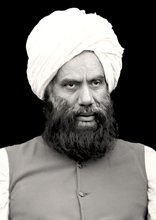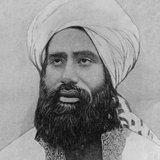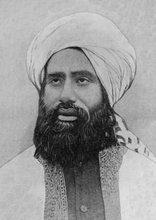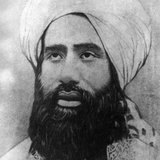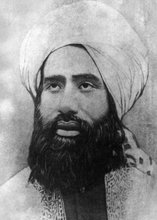Exhibition
Hazrat Khalifatul Masih I
Born in Bhera (Punjab) in 1841, Hazrat Hakeem Maulvi Nuruddin was the first Successor to the Promised Messiah, Hazrat Mirza Ghulam Ahmad. He steered and guided the Ahmadiyya Muslim Community after the difficult period following the demise of its Founder. He was an extremely eminent scholar, exceptional theologian and esteemed physician. He memorised the Holy Qur’an at a very young age and also attained an extremely high level of proficiency in Arabic. He acquired first hand and deep understanding of the Holy Qur’an and also a broad spectrum of Islamic literature produced since early Islam. In pursuit of knowledge, he travelled far and wide enjoying the privilege of a four year stay in the holy cities of Makkah and Madinah.
An attack of Diphtheria in his early youth kindled an inclination in his heart towards Eastern Medicine and he acquired this knowledge from the best doctors in the field. He had an intuitive understanding of a patient’s condition that enabled him to rapidly become a renowned physician. This unique blend of religious understanding, spiritual experience and knowledge of medicine, made him universally known from the elite to the common-man and from the academia to the illiterate masses of the Indian Subcontinent. The Maharaja of Kashmir could think of no other name when he wanted to have a resident physician. Hazrat Hakeem Maulvi Nuruddin never pursued the worldly prestige and success that he enjoyed but instead always sought a strong relationship with his Creator. He became deeply distressed by witnessing the decline of the state of the Muslims, causing him to strongly desire that the Messiah should soon appear who had been prophecised by the past scriptures.
Under divine commandment Hazrat Mirza Ghulam Ahmad, the Promised Messiah, founded the Ahmadiyya Muslim Community on 23rd March, 1889 and the very first person who swore the pledge of allegiance was Maulana Hakeem Nooruddin. He spent the rest of his life as the most loyal Companion to the Promised Messiah. His devotion and dedication to the Promised Messiah was complete and total. In Qadian, his only pursuit was religious instruction. He was unique in his character and much sought after in intellectual circles. Despite this, he chose the company of the Promised Messiah and worked tireless to help defend Islam and the Holy Prophet. After the demise of the Promised Messiah, Hazrat Maulana Hakeem Nooruddin was unanimously elected as his successor on 27th May 1908. He guided the community in this capacity till his death on Friday March 13th, 1914.
During his era he established the theological seminary Madrassah Ahmadiyyat, set up the Baitul Maal (treasury), laid the foundation for Talimul High school and established the first foreign mission in England. His Darsul Qur’an (lessons on the understanding of the Holy Qur’an) was a source of spiritual enlightenment for not only the Community but for the Muslims at large. His commentary of the Holy Qur’an has been published under the title Haqaaiq-ul-Furqan (Facts of the Holy Qur’an) and is a great source of Quranic knowledge.
Hadhrat Maulana Hakeem Nooruddin was a pure and simple man, exceptionally knowledgeable and truthful. He had excellent qualities of administration and statesmanship. He had a singular and extraordinary faith in God. His trust in God was noteworthy and very remarkable. He exercised modesty, kindliness and patience which earned him the affection of all around him.
The news of his death was carried by papers throughout India and commentaries lauding this illustrious dignitary were written. Maulana Zafar Ali, editor Daily Zamindar wrote:
"Maulana Hakeem Nooruddin Sahib who was a great and erudite scholar passed away on 13th march after a long illness. His demise is a great loss and has created a void in Muslim community. It is said that a genius is born after one hundred years. The departed soul undoubtedly belonged to this grand roll of honour."
